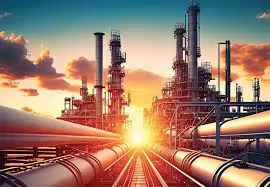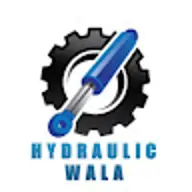Pipeline Engineering

Language
English
235 Views
Share
January 25, 2025
2:30 PM (Local)
30 Hrs
This course format is where trainer will explain you the subject via online live session. This course will run as per specific date and time.
₹ 14999
online

₹ 14999
Why do you enroll
Key topics covered
Course details
Course tags
Why do you enroll
Comprehensive Knowledge: Participants will gain a thorough understanding of pipeline design principles, including material selection, hydraulic calculations, and stress analysis, equipping them with the skills needed to excel in the field.
Practical Skills: The course emphasizes hands-on experience, providing participants with the tools and techniques necessary to tackle real-world engineering challenges effectively.
Industry Standards: Learners will become familiar with key industry standards and regulations, ensuring their designs comply with safety and operational guidelines.
Certification: Completing the course provides a certification that adds value to participants' resumes, showcasing their commitment to professional development in pipeline engineering.
Overall, this course is designed to empower participants with the knowledge, skills, and connections they need to succeed in the dynamic field of pipeline design and engineering.
Show more
Key topics covered
Introduction to Pipeline Engineering
Overview of pipeline systems and their importance in various industries.
Types of pipelines and their applications.
Material Selection
Criteria for selecting appropriate materials for pipelines.
Overview of common materials used and their properties.
Hydraulic Calculations
Principles of fluid flow and pressure drop calculations.
Methods for calculating flow rates and pipeline capacities.
Stress Analysis
Basics of stress and strain in pipeline systems.
Techniques for performing stress analysis using software tools.
Pipeline Design Standards
Overview of relevant codes and standards (e.g., ASME, API).
Understanding regulatory requirements and best practices.
Construction Techniques
Methods for constructing and installing pipelines.
Safety considerations and environmental impact assessments.
Maintenance and Inspection
Strategies for maintaining pipeline integrity and reliability.
Inspection techniques and technologies for pipeline monitoring.
Leak Detection and Mitigation
Importance of leak detection systems and methods.
Mitigation strategies for preventing and managing leaks.
Case Studies and Practical Applications
Real-world examples of pipeline design and engineering challenges.
Interactive sessions for analyzing case studies and problem-solving.
Show more
Course Details
To equip learners with the fundamental principles and practical skills required for the design, analysis, and engineering of pipelines in various industries, ensuring safety, efficiency, and compliance with relevant standards.
This course covers the essential aspects of pipeline design, including material selection, hydraulic calculations, stress analysis, construction techniques, and maintenance practices. It emphasizes industry standards and best practices, preparing participants to tackle real-world challenges in pipeline engineering.

Show more
Course tags
Industry domains :
Engineering Disciplines :
FAQs on Pipeline Engineering
Having specific question ? Ask now
Trainer’s Feedback
4 course rating
21 ratings
MA
Mohd Afzan Hamizan Abdul Rahman
4 months ago
good
PK
PRATHAMESH KUMBHAR
5 months ago
its helpful
AN
Aung Naung
6 months ago
Great . Well presentation with brief explanation on PMS.
AJ
Anuj Jagadale
6 months ago
Love the lecture! Presentation were onto to the point. Gained maximum knowledge in little time.
PR
Pradeep Raju Jampana
6 months ago
This was a great class and good explanation.
AA
Atul Adke
6 months ago
It was great session. Thank you for efforts and supports.
Xj
Xena jin
6 months ago
Honestly, the live class was pretty good. Very informative and free on top of that
MH
Mohammad Hashim Raza
6 months ago
It was highly informative and presenter is amazingly expert in the subject.
VH
Varci Horácio
6 months ago
The session was very informative, however it would be better to include all images in the presentation to avoid switching screens to google
MG
Mahesh Gholap
6 months ago
It was nice presentation....
AS
Azhar Shaikh
6 months ago
It was good
SG
Shubham Gage
6 months ago
Very beautiful course
FA
Fahrell Adlinizar
6 months ago
Good explanation
DS
Darshan Shingane
6 months ago
Good
JD
Jody Donysius
6 months ago
Good presentation. Thank you so much
MR
Mohammed Rizvi Uvais
6 months ago
It is outstanding brief explanation of PMS and well prepared and presented.
TN
THET NAING TUN
6 months ago
complete intro and very informative. Recorded video is showing to buy 89 INR. For attendees, it should be free.
MJ
Mohamed Javeed
6 months ago
The presentation was informative and we look for more in-depth details of piping materials and its workflow with project examples will be very easy to access for the junior level engineer like us .
P
Prasanna Ramasamy
6 months ago
More details and rules of thumb to remember the material specifications for different fluids and temperature based classification would be helpful.
SN
Sulist Nurwahyudi
6 months ago
So far..its a Good explanation
AR
Ali Raza
6 months ago
The course was intriductory level and I was expecting some good information as a stress engineer
Certificate of Mastery

Receive well recognised certificate that you can showcase on
Featured courses
Hazard Identification and Risk Assessmen...

How to prevent corrosion in the oil and ...

Application and use of "Green Hydrogen"

Career in EPC projects for Freshers

Career in EPC Cost Estimation

Learn MATLAB Programming

More Technical Courses From Team Piping Engineering
Essential Piping Engineering: Design, Ma...

Piping Material Specification and relate...

SP3D ADMINISTRATION

E3D

AutoCAD

SP3D

Piping Engineering

Piping Material Specification and relate...

Similar Content Learn:
Installation process of Solar System in ...

Hydraulic Machines

Comprehensive Course on Electrical and I...

ASPEN HYSYS

ASPEN PLUS

Solar Rooftop Power Plant Installation P...

Similar Content Mentor:
All About Interviews

Presentation Skills _ Part 2

How to motivate & encourage team bonding...

Time Management essentials for Engineers...

COMMUNICATE TO WIN - The most important ...

Similar Content Seminar:
The Petrochemical and Refining Congress:...

The Oil and Gas Decarbonisation Congress...

OIL & GAS AUTOMATION AND DIGITALISATION ...

7th International Oil & Gas Chemistry, C...

Similar Content Blogs:
Technical Basis for Impact Test Exemptio...

A brief mathematical overview of the for...

Reaching Net-Zero: The Power of Predicti...

Aerodynamic physics of the Delta Wing

Seal of Hydraulic cylinder.

PRC Europe 2025: Italian Partners at the...

Similar Content Community:
Firefighting Design By Naga

Engineer's Corner

Cathodic protection

Similar Profile:

Hira Lal
Engineer

Vijay Sachdev
Consultant - Project & Pr...

Sabari Kuppuraj
Engineer

Atul Kabre
Independent Consultant

Sawrabh Raj
Sr Instrumentation Design...

Please wait








































